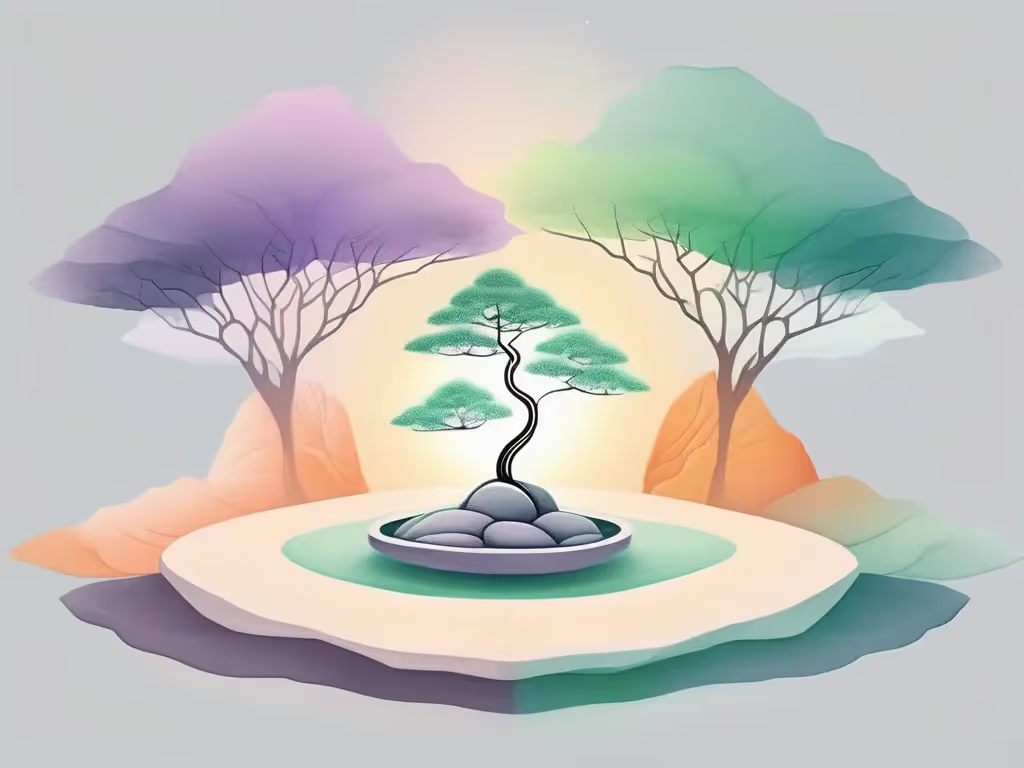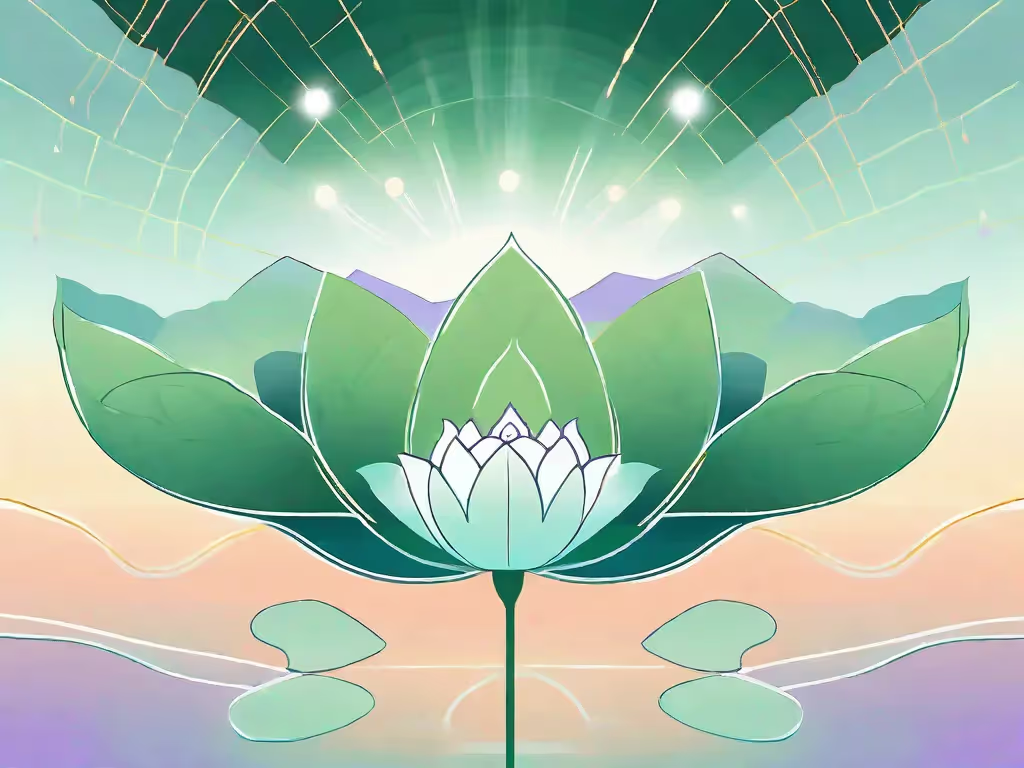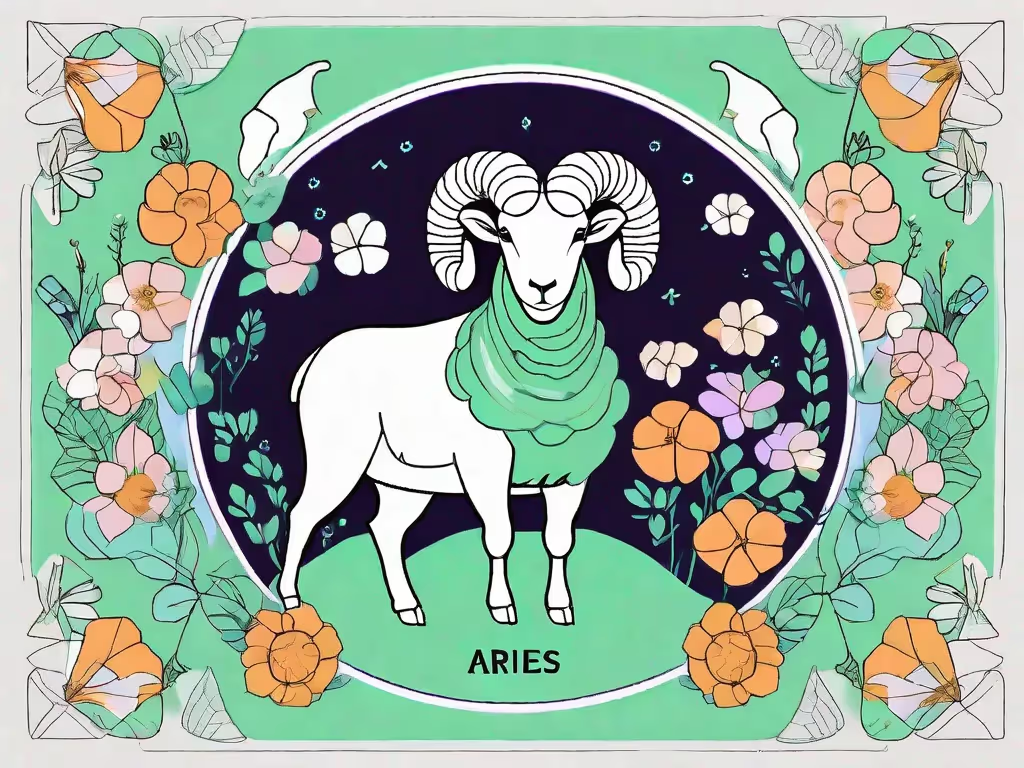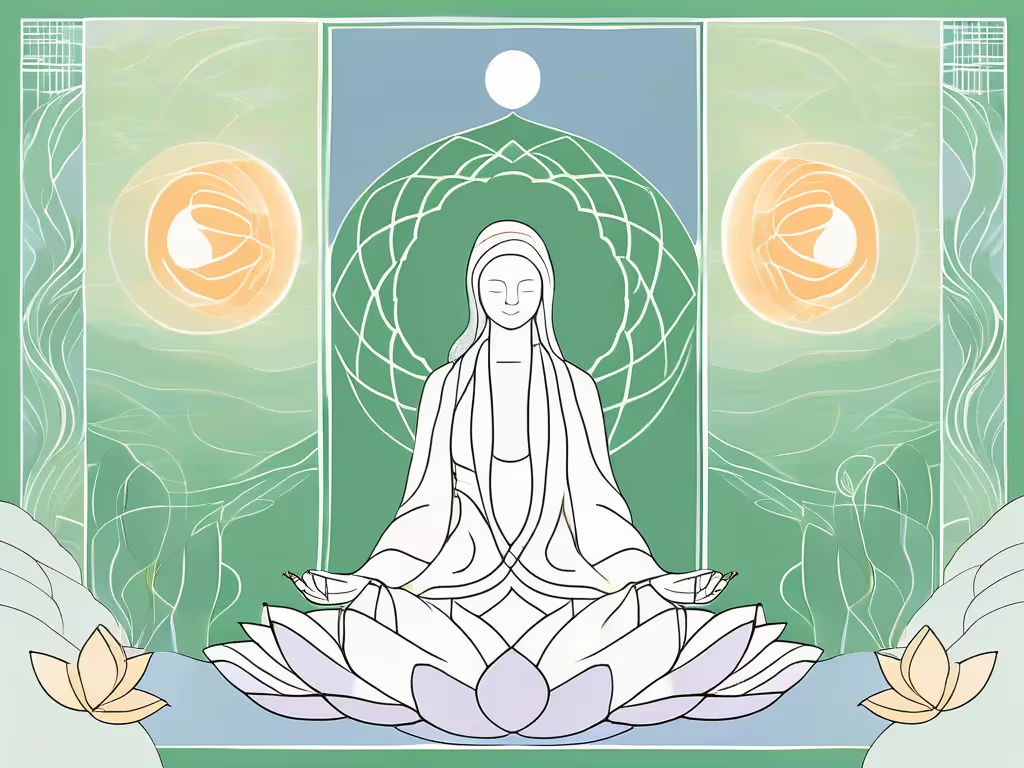In the realm of meditation and mindfulness, there are numerous practices, techniques, and concepts that guide individuals on their path to inner peace and self-discovery. One such intriguing concept is the Koan. A Koan is a paradoxical anecdote or riddle, used in Zen Buddhism to demonstrate the inadequacy of logical reasoning and to provoke enlightenment. The term is a compound of two Chinese words: 'Ko', which means public, and 'An', which means space or matter. Together, they imply a point of public discussion or debate.
The practice of Koan is an integral part of Zen Buddhism and is used as a meditation device. It is designed to exhaust the analytic intellect and the egoistic will, readying the mind to entertain an appropriate response on the intuitive level. It is a tool to shake up the usual way we perceive the world, with the aim of experiencing reality beyond the limitations of intellectual understanding.
Historical Background of Koan
The practice of Koan originated in China during the Tang Dynasty and was later transmitted to Korea, Japan, and Vietnam. It was initially a recorded dialogue or encounter between a Zen master and his disciple. These dialogues were often enigmatic and paradoxical in nature, challenging the disciple's perception of reality and pushing them towards enlightenment.
Over time, these recorded dialogues were collected and compiled into various anthologies. The most famous of these is the 'Blue Cliff Record', a collection of 100 Koans compiled by Yuanwu Keqin during the Song Dynasty. These collections serve as study guides for Zen students, providing them with material for meditation and contemplation.
Role of Koan in Zen Buddhism
The Koan serves a crucial role in Zen Buddhism. It is not merely a riddle to be solved but a tool to experience the reality beyond intellectual understanding. The paradoxical nature of a Koan is intended to exhaust the mind of logical reasoning, pushing it towards a state of 'no-mind' or 'empty mind', a state where enlightenment can occur.
It is important to note that the aim is not to 'solve' the Koan but to 'live' it. A Zen student is expected to immerse themselves in the Koan, letting it permeate their thoughts and actions, until they can respond spontaneously and intuitively. The response is not a solution but an expression of the student's enlightened state.
Examples of Koans
There are numerous Koans, each with its unique flavor and depth. Some are simple and direct, while others are complex and multi-layered. Here are a few examples:
- "What is the sound of one hand clapping?"
- "Does a dog have Buddha nature?"
- "What was your original face before your mother and father were born?"
Each of these Koans is designed to challenge our usual way of thinking and to push us towards a direct experience of reality.
Interpreting a Koan
Interpreting a Koan is not like solving a riddle or a puzzle. It is not about finding a logical or intellectual answer. Instead, it is about transcending the intellectual mind and experiencing reality directly. The interpretation of a Koan is a deeply personal and subjective process. It is not about what the Koan 'means' but how it is 'lived'.

The interpretation of a Koan is often guided by a Zen master. The master provides the student with a Koan and then monitors their progress, providing guidance and feedback along the way. The student's response to the Koan is not judged as right or wrong but as an expression of their understanding and experience.
Role of a Zen Master in Koan Practice
A Zen master plays a crucial role in the practice of Koan. They serve as a guide and mentor, providing the student with a Koan and guiding them through their journey. The master's role is not to provide answers but to challenge the student's assumptions and push them towards enlightenment.
The relationship between a Zen master and a student is a deeply personal and intimate one. The master needs to understand the student's mind and tailor the Koan practice to their unique needs and circumstances. This requires a deep level of trust and understanding between the master and the student.
Common Misconceptions about Koan Practice
There are many misconceptions about the practice of Koan. Some people view it as a form of intellectual exercise or a riddle to be solved. This is a misunderstanding. The purpose of a Koan is not to find a logical answer but to transcend the logical mind.
Another common misconception is that the practice of Koan is reserved for monks or advanced practitioners. This is not true. Anyone can practice Koan, regardless of their level of experience or background. The only requirement is a sincere desire to understand oneself and the nature of reality.
Benefits of Koan Practice
The practice of Koan offers numerous benefits. It is a powerful tool for self-discovery and self-realization. By challenging our usual way of thinking, it pushes us to experience reality directly, beyond the limitations of intellectual understanding.
The practice of Koan can also lead to a state of 'no-mind' or 'empty mind', a state of pure awareness free from thoughts and distractions. This state is often associated with a sense of peace, clarity, and joy. It can also enhance our ability to be present and mindful in our daily lives.
Enhances Mindfulness and Presence
The practice of Koan can enhance our ability to be present and mindful. By challenging our usual way of thinking, it pushes us to be fully present in the moment, free from thoughts and distractions. This can enhance our ability to focus and pay attention, improving our performance in various areas of life.
Moreover, the practice of Koan can help us develop a sense of equanimity and peace. By experiencing reality directly, we can develop a deeper understanding of ourselves and the world around us, leading to a sense of peace and contentment.
Leads to Self-Discovery and Self-Realization
The practice of Koan is a journey of self-discovery and self-realization. By challenging our usual way of thinking, it pushes us to explore the depths of our being and to discover our true nature. This can lead to a profound sense of self-realization and enlightenment.
Moreover, the practice of Koan can help us develop a deeper understanding of ourselves and the world around us. By experiencing reality directly, we can gain insights into the nature of existence, leading to a sense of wisdom and understanding.
How to Practice Koan
The practice of Koan is a deeply personal and subjective process. It is not about finding a logical answer but about experiencing reality directly. Here is a general guide on how to practice Koan:

- Choose a Koan: The first step is to choose a Koan. This can be done with the guidance of a Zen master or by choosing one from a collection of Koans.
- Contemplate the Koan: Once you have chosen a Koan, contemplate it deeply. Let it permeate your thoughts and actions. Do not try to find a logical answer. Instead, let the Koan challenge your usual way of thinking and push you towards a direct experience of reality.
- Live the Koan: The aim is not to 'solve' the Koan but to 'live' it. Let the Koan become a part of your life, influencing your thoughts, actions, and perceptions.
- Express the Koan: Once you have lived the Koan, express it. This can be done through words, actions, or any other form of expression. The aim is not to provide a 'correct' answer but to express your understanding and experience.
Remember, the practice of Koan is not about finding a logical answer but about transcending the logical mind and experiencing reality directly. It is a journey of self-discovery and self-realization, leading to a profound sense of peace, clarity, and joy.
Conclusion
The practice of Koan is a powerful tool for self-discovery and self-realization. By challenging our usual way of thinking, it pushes us to experience reality directly, beyond the limitations of intellectual understanding. Whether you are a seasoned practitioner or a beginner, the practice of Koan can offer a unique and profound path towards enlightenment.
Remember, the aim is not to 'solve' the Koan but to 'live' it. Let the Koan permeate your thoughts and actions, until you can respond spontaneously and intuitively. The response is not a solution but an expression of your enlightened state. So, embark on this journey with an open mind and a sincere heart, and let the Koan guide you towards a deeper understanding of yourself and the world around you.



.webp)






.avif)

%20(1).avif)


.avif)
.avif)
.webp)


.avif)


















































































































.avif)

















.svg)









